Cyber Security Training for Employees: 10 Types & Programs
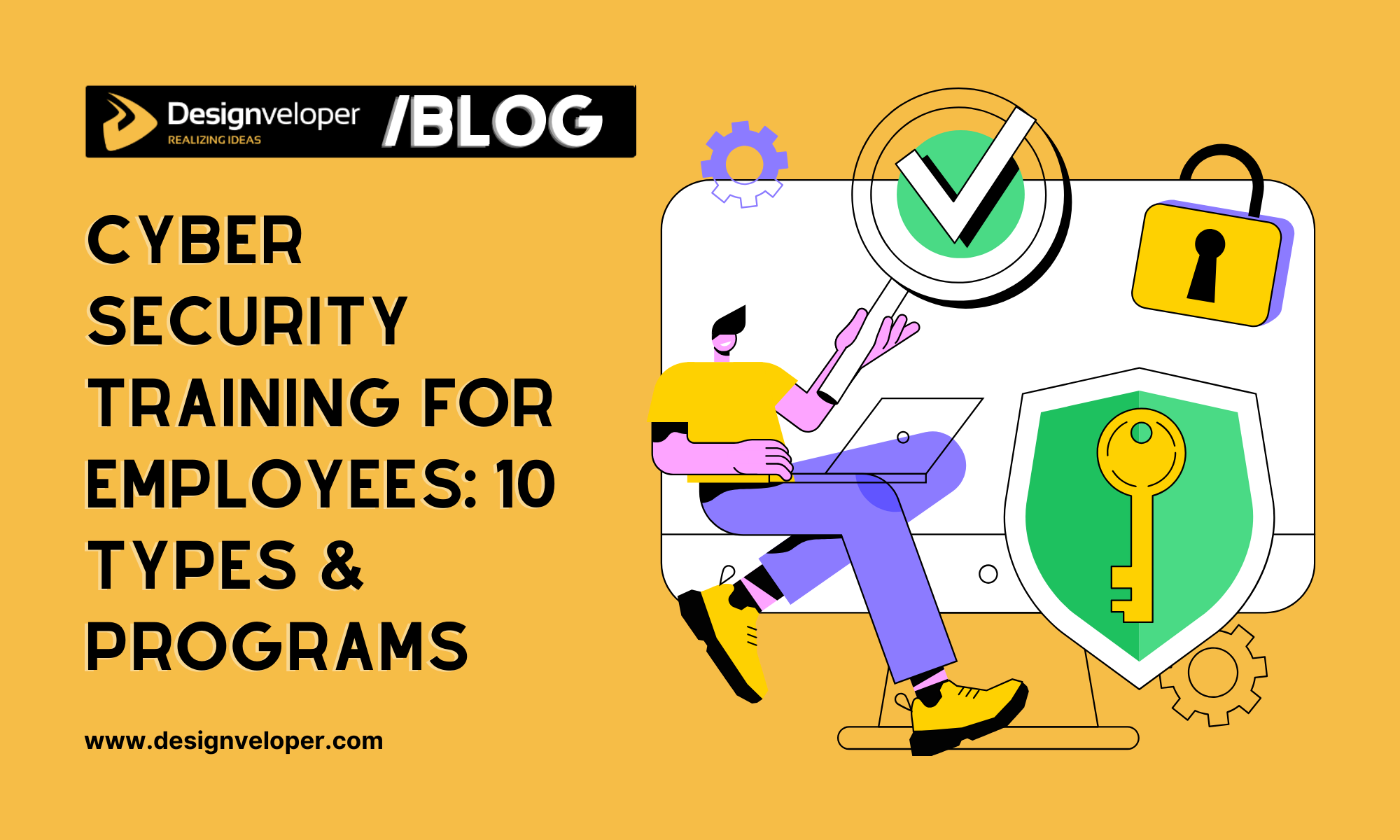
Cyber security training for employees is more crucial than ever. Why? Cyberattacks are rising, and various businesses face many threats daily. While hackers try to steal confidential information and money, internal employees can accidentally expose sensitive data through human errors. Without proper training, their businesses can easily fall for these threats.
But what types of training are required for cyber security? Which training programs should you consider for your in-house staff? Let’s discover all these things in our detailed article.
Why is Cyber Security Training Crucial?
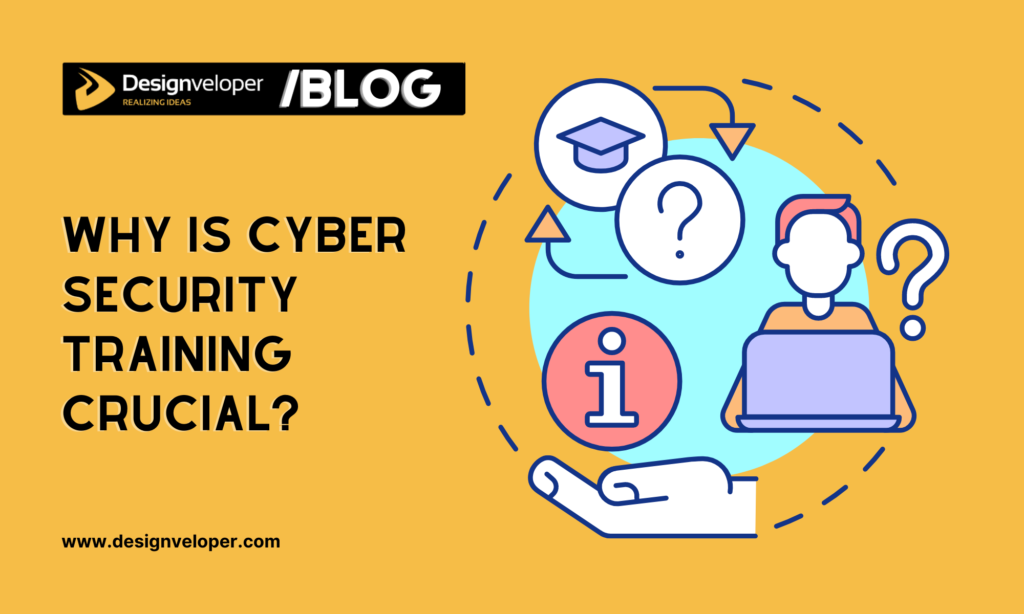
In the first quarter, CNN reported a severe phishing attack powered by the deepfake technology. Accordingly, a finance worker was deceived into transferring $25 million to someone whom he thought was the chief financial officer through a video call. But in fact, this “officer” is a sophisticated creation of deepfake.
This is not the only case study when companies facing cyber threats. Apart from phishing, GlobalData reported a significant rise in cyber extortion attempts, particularly against SMBs, large enterprises, and even government entities. This led to financial damage of over $23 million in 2023. Hacktivism is also projected to expand in 2024, with DDoS as the most preferred tool for causing operational disruption.
Employees are often the first line of defense against cyber threats. It’s because they handle sensitive data and access various systems daily through different devices (like smartphones or computers). Their actions can either protect or compromise your company’s security posture.
Therefore, cyber security training is essential to increase their awareness of potential threats and avoid them. Accordingly, it can reduce the risk of successful cyberattacks, protecting your company’s data, reputation, and money. Further, training programs help all employees and the board management adhere to industry standards and regulations.
How to Train Employees on Cyber Security
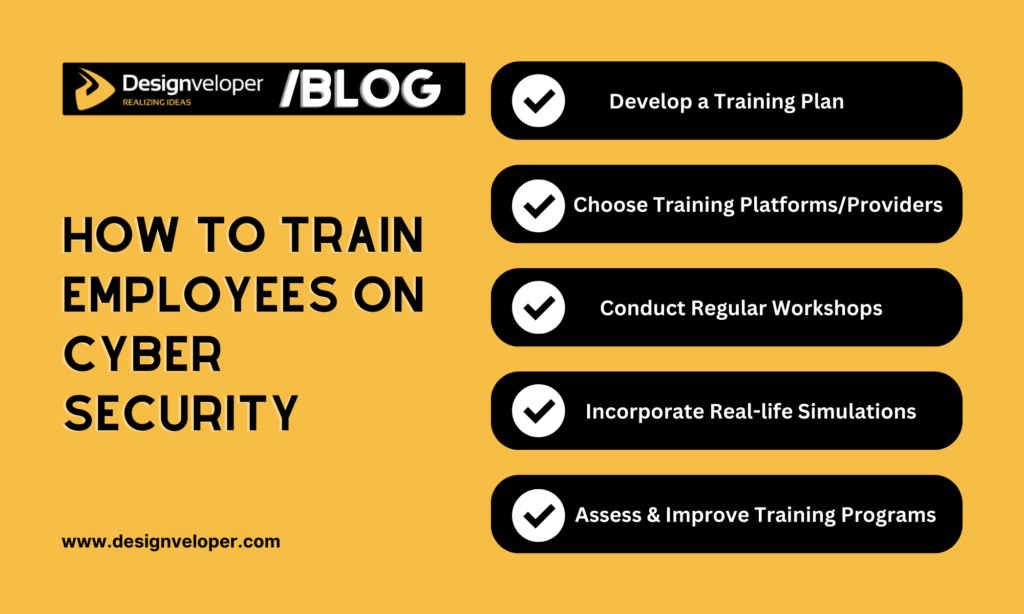
Understanding the benefits of cyber security training, you now might be curious about how to train your employees effectively. We’re here to guide you through the process with practical steps, from creating a detailed training plan to reviewing and improving the plan.
Develop a Comprehensive Training Plan
A well-structured training plan is crucial for effective cyber security training for employees. To create a suitable plan, you need to:
- Assess your employees’ existing knowledge to determine knowledge gaps.
- Determine the specific roles and responsibilities of your employees to tailor training accordingly. For example, IT staff needs in-depth technical training on threat detection and incident response. Meanwhile, sales personnel can require more focused training on phishing awareness and customer data protection.
- Set clear learning goals by defining what you want your employees to achieve after the training.
- Create a detailed timeline for initial and ongoing training sessions.
Further, you can collaborate with cybersecurity experts to develop the curriculum. You should also update it frequently to reflect the latest threats and best practices.
Choose Training Platforms or Providers
Once you already have a comprehensive plan, choose the right training platforms or providers. Look for platforms that offer interactive and engaging content, as well as modules that cover a variety of topics (e.g., basic cyber hygiene or advanced threat detection). As for training providers, you should choose the one who has a good track record and positive reviews. Further, never forget to consider your budget when choosing a platform or provider.
Conduct Regular Workshops and Seminars
In-person or virtual workshops and seminars provide a good chance for employees to interact with cybersecurity experts. Accordingly, they can ask questions in real time and engage with cybersecurity issues in a practical manner. You can invite guest speakers from the cybersecurity industry to share their experiences and insights. Scheduling these sessions regularly and including a wide range of topics will keep your employees updated.
Incorporate Real-life Simulations
Simulating real-life cyberattacks can help your employees understand potential threats and how to respond effectively. For example, you can leverage phishing simulations to teach employees how to detect and prevent phishing emails. These simulations may effectively reinforce theoretical knowledge and prepare your employees for real-world situations.
Assess and Improve Training Programs
With the ever-changing of cybercrime and cybersecurity solutions, regularly improving training programs is a must. You can evaluate how employees understand the key cybersecurity concepts through surveys, quizzes, or feedback. Then, continuously enhance your training materials and integrate the latest cybersecurity trends or threats. We also advise you to track incident rates and conduct periodic security assessments. This will help you measure how well employees apply their training in practice.
10 Types of Training for Cyber Security
Effective cyber security starts with well-trained employees. However, there are different types of cyber security training for employees out there. Each targets specific vulnerabilities and threats with comprehensive protection measures. Here are ten key types of training you may consider based on your cyber security needs:
Phishing Awareness Training
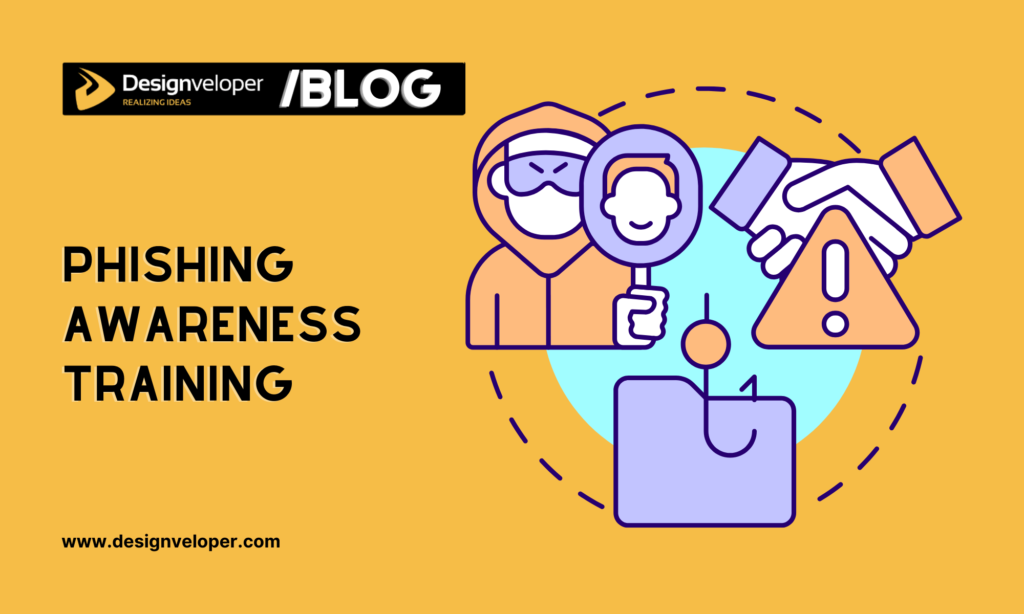
Phishing remains the leading initial access risk, with over two in five cases related to it. This cybercrime refers to tricking users into revealing confidential information or installing malware software, often through emails. Phishing comes into different categories, like business email compromise (BEC), smishing, vishing, spear-phishing attacks, and financial phishing.
With its significant impacts, you should consider phishing awareness training for your employees. It’s ideal for all employees who handle sensitive information or frequently interact with emails and external communication. This training offers the following content:
- Detail what phishing is and its different forms (email, phone, and SMS).
- Elaborate on common signs of phishing attempts, like suspicious email addresses, urgent requests, or unknown links.
- Give real-life case studies of phishing attacks.
- Provide steps to take if a phishing attack occurs or employees doubt that they have been targeted.
Password Management Training
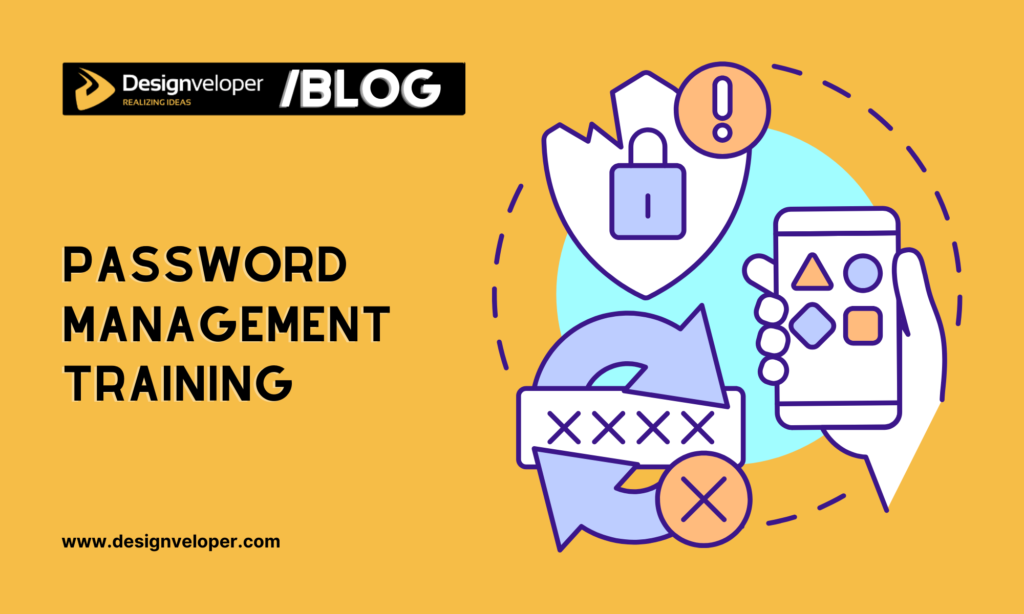
Do you know the most common password in 2023 was 12345? Yet it’s considered insecure to protect your account from unauthorized access or cyber threats. Organizations like Google or America’s Cyber Defense Agency require users to combine uppercase letters, lowercase letters, numbers, and symbols to strengthen their passwords (e.g., cXmnZK65rf*&DaaD). However, even these complicated passwords can be hacked or misused if improperly managed.
Understand the importance of password management, its market is expected to surpass $3 billion in 2025 with outstanding solutions (e.g., Dashlane Business or LastPass). Further, password management training is held to help employees, especially account admins, manage passwords and credentials better. Its content covers:
- Strong, unique passwords for accounts and their importance.
- Best practices to create strong passwords (e.g., length or complexity).
- The importance of regular password updates.
- Risks of password reuse and sharing.
Data Protection and Privacy Training
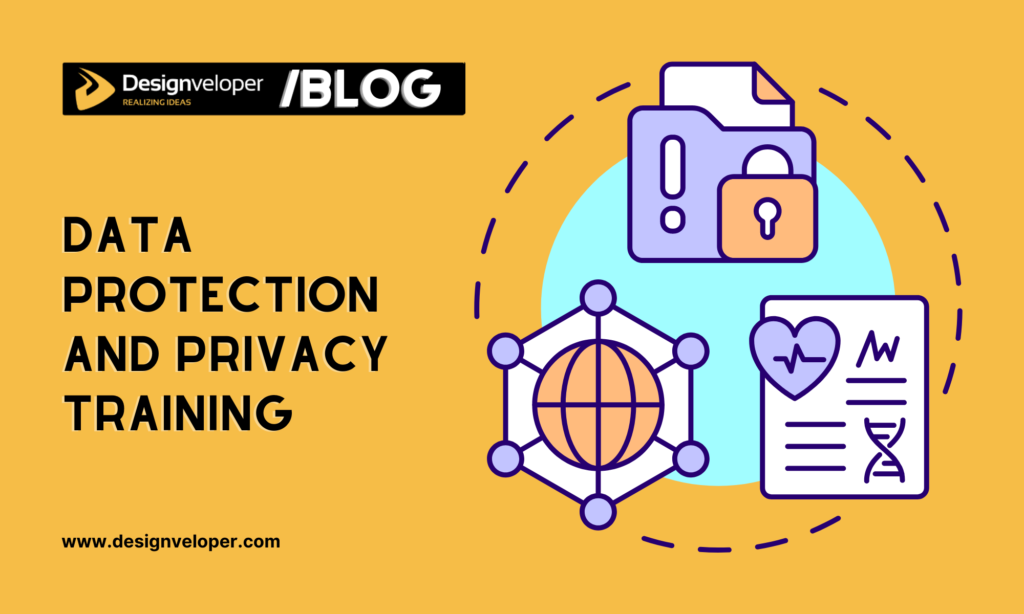
By April 2024, data breaches in the US reach a vast number of over 5.3 billion incidents. Most cases are related to personal information (nearly 60%), followed by internal data and credentials. These data breaches can be attributed to internal and external threats.
To avoid these security incidents, you need dedicated data protection and privacy training. This program is suitable for employees handling data or managers and executives responsible for overseeing data protection policies. Its content involves:
- Data protection laws & regulations (e.g., GDPR or CCPA).
- Best practices to tackle and store personal and sensitive information.
- Data encryption methods and the significance of encrypting sensitive data.
- Steps to ensure data privacy and security, both online and offline.
Social Engineering Awareness Training
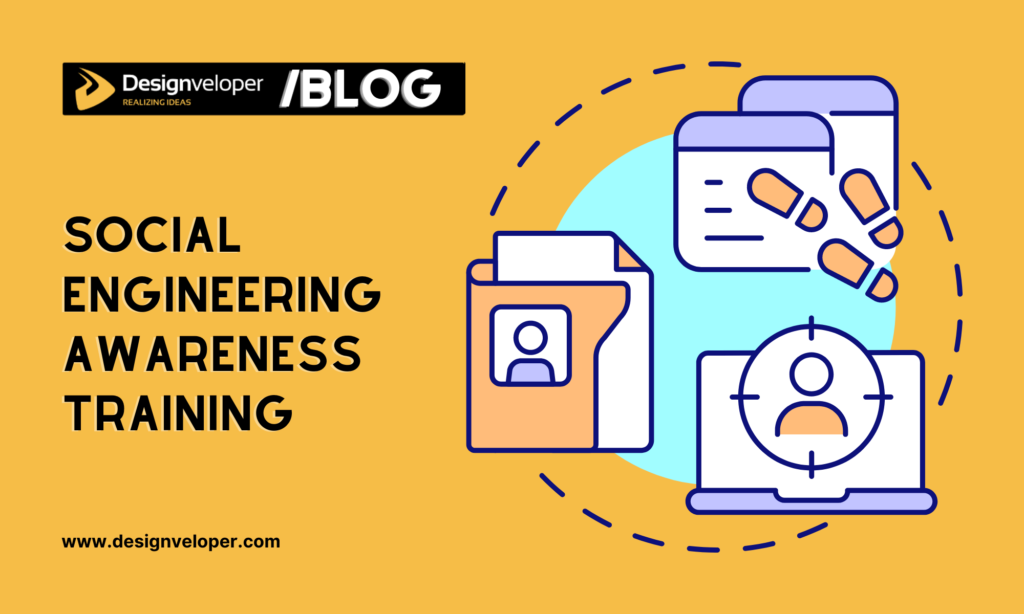
Social engineering is a broader term for phishing. In addition to emails, social engineering uses psychological manipulation to deceive victims into disclosing sensitive data or making security mistakes. Therefore, training is essential to make employees, especially customer-facing staff, more aware of social engineering. This training includes:
- Definitions & types of social engineering attacks (like pretexting, baiting, or quid pro quo).
- Common tactics used by threat actors to manipulate and trick employees.
- Real-world examples of social engineering attacks and their impact.
- Techniques to verify the identity of those requiring sensitive data.
Incident Response Training
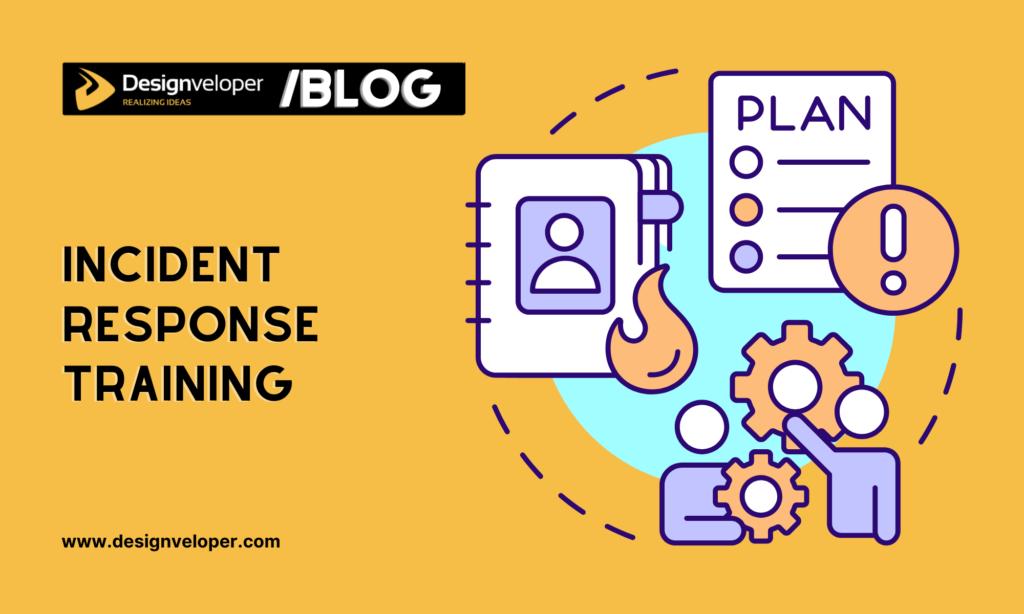
When a security incident happens, what should employees do to promptly resolve it? Incident response training will equip them with knowledge essential to handling cyberattacks effectively. It’s well-suited for IT and security teams responsible for tackling cyber incidents or key personnel involved in crisis management and communication. Normally, incident response training covers:
- Measures to take right after a suspicious cyber threat or breach.
- Roles and duties of each person in the incident response team when threats appear.
- Communication protocols during an incident, for example, informing affected parties and regulatory bodies.
- Use of incident response tools, techs, and strategies.
- Post-incident analysis and reporting to prevent future incidents.
Mobile Device Security Training
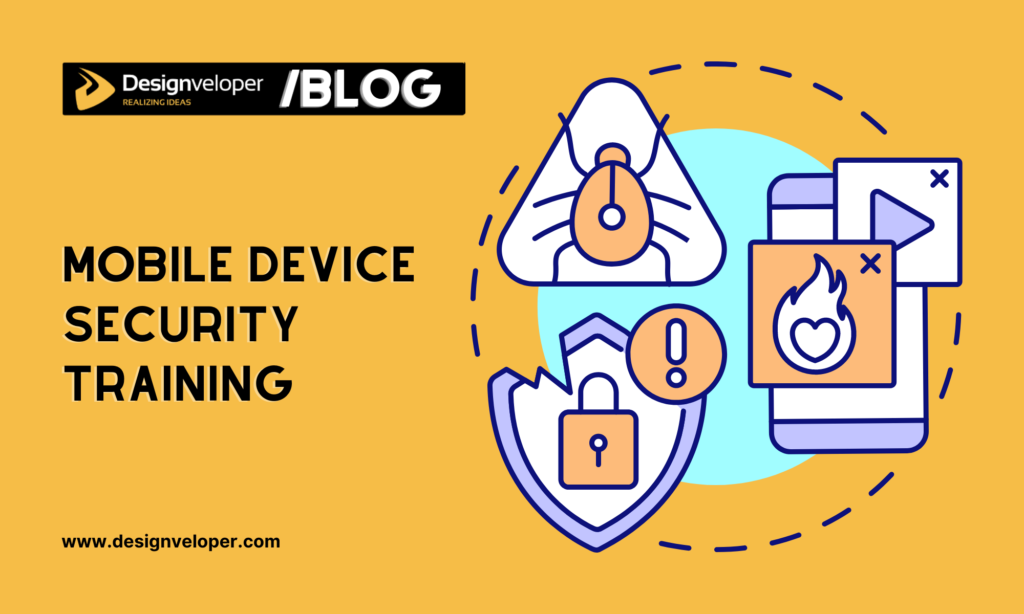
According to Kaspersky, the number of detected malicious installation packages on mobile devices was almost 390K in the first quarter of 2024. They’re primarily AdWare, RiskTool, and different types of Trojan. As more and more employees use mobile gadgets for their work, mobile security training is necessary to help them protect confidential information. It often entails:
- Significance of securing mobile devices used for work.
- How to set up secure passwords and enable biometric authentication.
- Use of encryption to safeguard sensitive data on mobile devices.
- Risks related to public Wi-Fi and how to leverage VPNs to protect connections.
- Processes to report lost or stolen devices.
Email Security Training

Egress found that 94% of organizations encounter email security incidents. Accordingly, over half of them fell victim to phishing attacks from compromised supply chain email accounts, followed by ATO (Account Takeover) attacks within these organizations. This encourages email security training among staff, especially those often communicating sensitive data via email (like finance).
This training helps your employees:
- Recognize and prevent phishing emails and malicious attachments.
- Implement safe email practices, like avoiding clicking on doubtful links or verifying a sender’s identity.
- Use email encryption and digital signatures for secure communication.
- Take essential steps if employees suspect their emails have been breached.
- Properly handle and remove confidential information sent via email.
Device Security Training
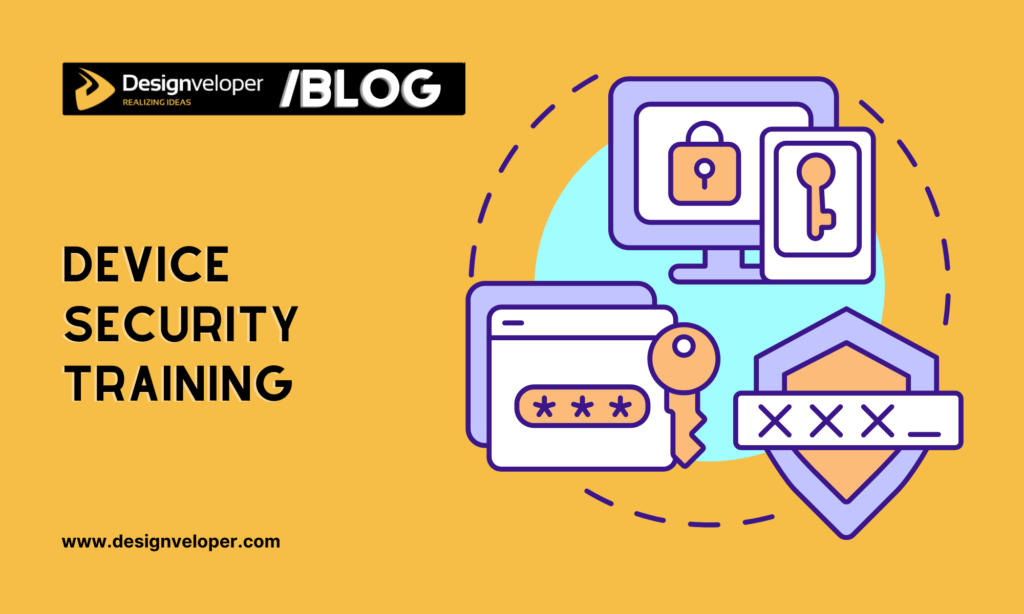
Internet-connected devices like IoT appliances, smartphones, or laptops can be compromised by cyber threats. That’s why device security is a must to safeguard these devices from unauthorized access and other harms. And device security training is a powerful assistant to help your employees grasp the following content:
- Physical security measures to protect devices (e.g., locking workstations and secure storage).
- Importance of using screen locks and automatic screen savers.
- How to secure during travel or off-site.
- Importance of regularly updating device software and firmware to prevent vulnerabilities.
- Processes to securely recycle or remove old devices without affecting confidential data.
Software and Application Security Training
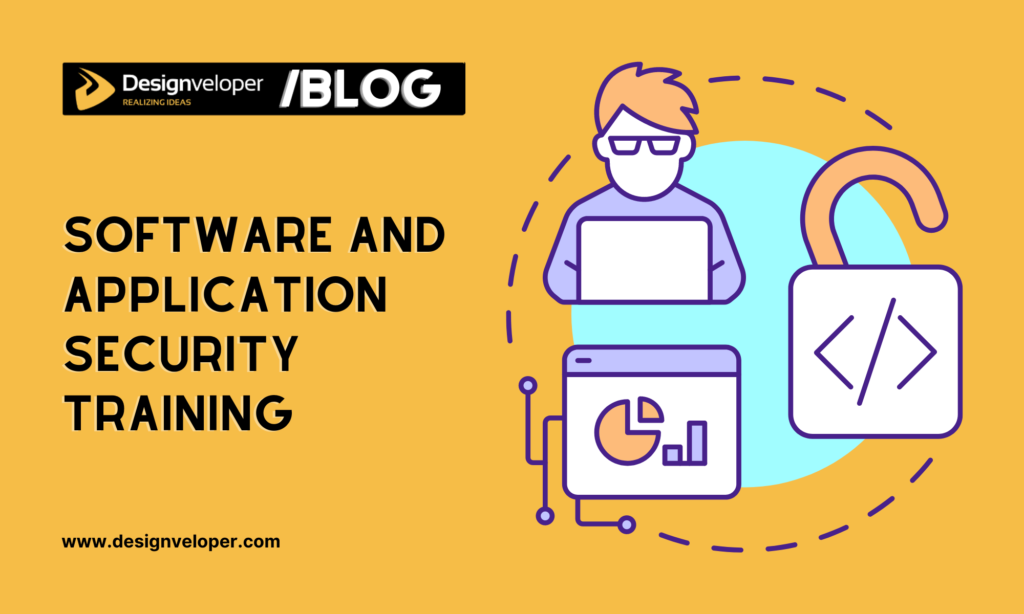
Like physical devices, software and applications can be prone to cybercrime if not properly protected. Confronted with this importance, the revenue of application security is predicted to expand at a CAGR of 12.89% from 2024 to 2029, reaching $13.57 billion in 2029. However, beyond tools and technologies, your employees need to be well-trained to raise their awareness and master best security practices.
Such training often includes:
- Importance of using updated and legitimate software and apps.
- How to detect and prevent malicious software and apps.
- Best practices to download and install software securely, involving checking for digital signatures and reviews.
- Understanding software vulnerabilities and how to mitigate risks.
- Processes to report and resolve software-related security issues.
Compliance Training

Using data requires your company to comply with industry standards and specific regulations like HIPAA. However, not all employees may be fully aware of these requirements or understand their importance. Therefore, it’s crucial to implement comprehensive training programs to educate staff about these regulations and best practices for data security. Its content often covers:
- Overview of relevant cyber security laws and regulations (e.g., HIPAA, GDPR, or CCPA).
- Company policies and processes for ensuring compliance with these regulations.
- Role-specific compliance requirements and best practices.
- Consequences of non-compliance for the company and individuals.
- How to report compliance violations and handle audits of the program.
10 Cyber Security Training Providers for Employees
Various companies today provide a wide range of products and services on cyber security training. So, which training providers should you consider? Let’s take a look:
1. Designveloper

Designveloper is one of the Vietnam-based leaders in various tech fields. With a dedicated team of excellent developers, cybersecurity professionals, and AI specialists, we’ve delivered effective products and services to our clients. Despite your business domain (e.g., healthcare or education), we can tailor any solutions to your specific domain, regardless of software or mobile apps.
As for cyber security, our experts offer a diversity of superb services. They include penetration testing, security/privacy threat modeling, compliance consulting, and security training. With our extensive experience across different industries, we can understand and master how to align your cyber security solutions with industry standards and regulations like HIPAA, PIPEDA, or GDPR.
Our customizable training programs entail the following content:
- Secure Coding Training: We’ll equip your developers with the expertise to produce secure code and reduce typical vulnerabilities.
- Security Awareness Training: We aim to educate your staff members on cybersecurity fundamentals. We also help them identify threats and implement the best practices effectively.
- Incident Response Training: We provide your IT and security teams with the skills essential to efficiently handle security incidents and breaches.
- Threat Modeling Training: We offer comprehensive guidance on conducting effective threat modeling sessions to assess and mitigate potential risks.
Price
2. RSI Security

RSI Security is a leading cybersecurity firm headquartered in San Diego, US. They specialize in providing a diverse range of IT security services. Their services include compliance advisory, cyber defense, managed security, training, and technologies (e.g., PII/PAN Scanner or Web Filtering).
Their expertise lies in offering reliable, flexible, and scalable cyber security solutions to safeguard your company from evolving threats. They work closely with your company to develop custom security strategies that fit your specific needs and industry regulations (e.g., CCPA, HITRUST, or CMMC).
As for cyber security training, RSI Security now offers the two following services:
- IT & Cybersecurity Awareness Training: this comprehensive program entails a diversity of services like Unlimited Phishing Security Tests, Monthly Email Exposure Check, and Social Engineering Indicators.
- Security Program Advisory: RSI Security helps your company develop a strategic security program. From Security Program Development and Security Staff Augmentation to Security Operations Center, they can cover them all.
Price
Contact Sales!
3. SANS
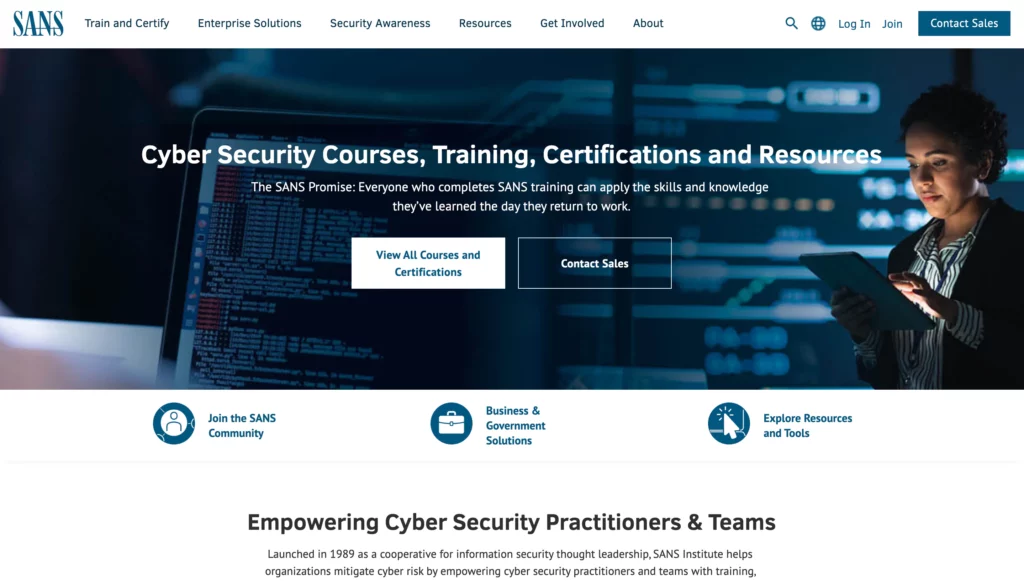
SANS Institute is a globally recognized leader in cyber security training, research, and certification. With over 35 years of working with expert instructors, SANS has provided a variety of training programs and resources to improve the cybersecurity capabilities of individuals and companies. Their training covers:
- EndUser Training: SANS provides customizable training that aligns with your company’s culture, your staff’s knowledge level, and training interests. This will change user behaviors related to cybersecurity.
- Phishing Platform: SANS also improves phishing awareness through real-world phishing simulations. It also gives you actionable insights through metrics and C-suite reporting. With these features, you can reinforce a phishing-aware culture across your company and inform decision-making.
- Specialized Training: SANS tailors training to fit your specific needs. For example, developers can engage in specialized defense training and secure coding techniques. Meanwhile, ICS engineers may need topics about the security behaviors of those who work closely with Industrial Control Systems.
One plus of SANS is that your company can customize, track, and improve training with the support of the SANS Security Awareness Maturity Model. Also, they offer certificates after training. This benefits those newly coming into this field or advancing your resume.
Price
Contact Sales!
4. Mimecast

Mimecast is a superb cybersecurity firm specializing in cloud-based email management and security. Working around the motto “Work Protected”, Mimecast has helped over 40K customers monitor and reduce cyber threats and human errors. Accordingly, they provide a suite of products including Advanced Email Security, Security Awareness Training, Email Archive, and other powerful add-ons.
When it comes to cyber security training, Mimecast offers a comprehensive platform to identify human risks (like insider threats) and measure how your employees are prepared to detect and handle cyberattacks effectively. Here are some features of this platform:
- Use video-based micro-learning that keeps you interested.
- Customize the training to match your training objectives by adjusting factors like topic rank and program configuration.
- Evaluate how employees are learning through risk scoring and actionable reports.
- Incorporate with Mimecast Advanced Email Security to showcase user risk scores clearly.
Price
Contact Sales!
5. SGS

SGS is a global leader in testing, inspection, and certification services. With a vast network of offices and laboratories worldwide, SGS offers various solutions to ensure quality, safety, and compliance across different industries. From product inspection and certification to supply chain assurance, SGS can cover them all. Accordingly, they help your business meet global standards and consumer expectations.
SGS offers a diverse range of training programs, depending on your specific industry. For example, Automotive Training helps you better understand and adhere to relevant standards like ISO/IEC 21434 (road vehicles cybersecurity engineering), ISO 26262 (road vehicles functional safety), or TISAX® (information security). Or Food Training focuses on plenty of standards like FSSC 22000/ISO 22000, BRCGS, or HACCP.
Regarding cyber security training, SGS offers many solutions for learners of all levels. They also have a proven track of providing different training (e.g., in-house, virtual learning, or blended).
- Cybersecurity Training & Personal Certification: This training helps a broad audience comprehend ISO/SAE 21434. With flexible training modules and certifications, they can start off their journey of becoming a cybersecurity professional.
- Cybersecurity Training: This training is for both beginners and professionals. It includes different cybersecurity topics like security threat & risk management, secure development & product life cycle, or communication & network security.
Price
Contact Sales!
6. Cofense
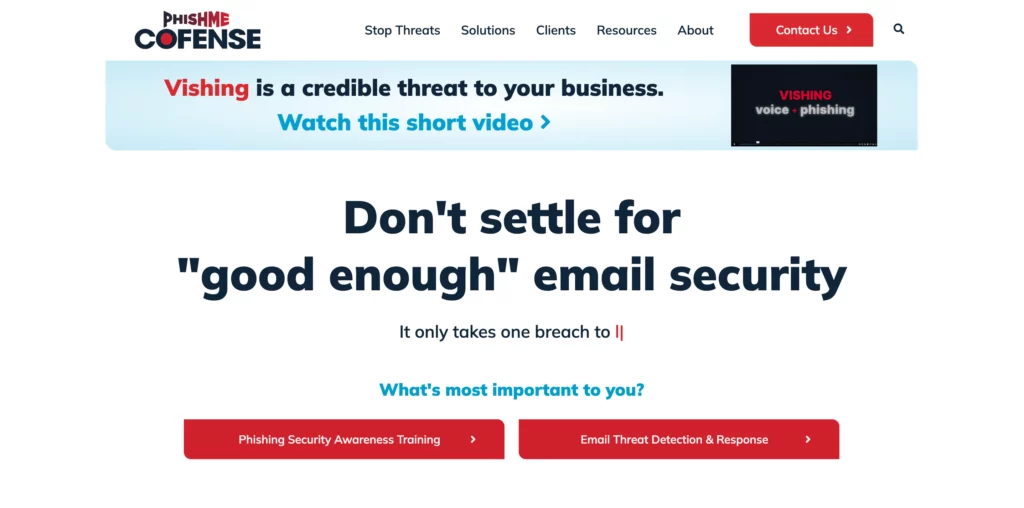
Are you looking for a good place to embark on email security? Don’t ignore Cofense! They combine human intelligence with advanced technology to recognize, analyze, and respond to email-based threats like business email compromise (BEC) or credential theft.
Cofense offers the Email Threat Detection & Response solution for email security. This solution automatically prevents email-related attacks that go past your traditional secure email gateways (SEGs). Further, it can strengthen your SOC (Security Operations Center) to swiftly detect and handle these threats.
In case you want to train your staff to combat email threats, take a look at Phishing Security Awareness Training (SAT). This platform comes with the following capabilities:
- It provides real-world threat simulations based on insights from Cofense Intelligence, Confense Labs, and Confense Phishing Defense Center (PDC).
- You can choose scenario-based training content that aligns with your team or import your company’s training sessions.
- Cofense allows you to report any suspicious behaviors from your emails through the Cofense Reporter plugin. You then can get threat reports quickly and see how effective your SAT program is with real-time insights.
Price
Contact Sales!
7. KnowBe4
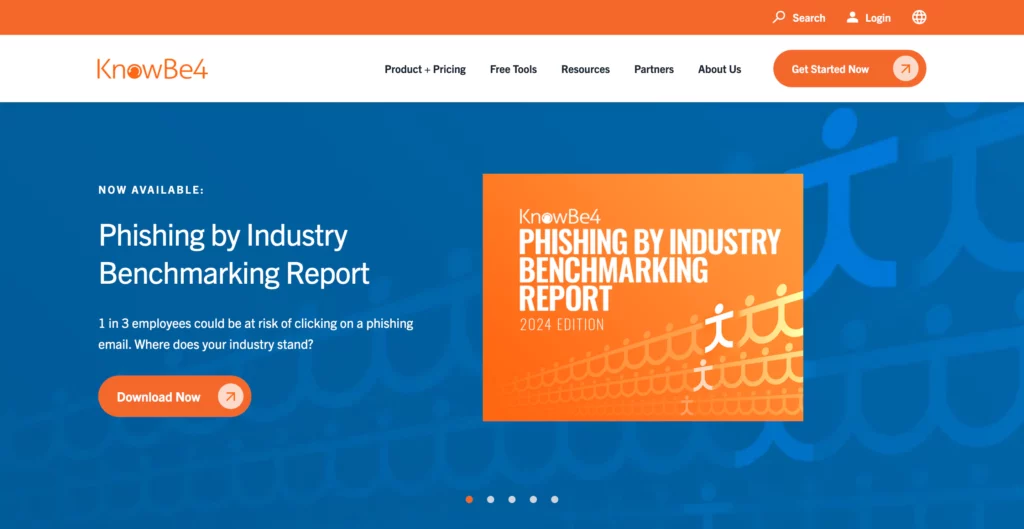
KnowBe4 is well-known for its cyber security training and simulated phishing platform. By educating your employees on cybersecurity best practices, the platform helps you mitigate human errors. Here’s what it offers:
- KnowBe4 Security Awareness Training: This feature provides a vast library of engaging training content, from interactive modules and videos to posters and newsletters. You can personalize training campaigns through built-in templates or employee behavior with the support of AI capabilities. KnowBe4 also allows for automatically managing security awareness training and related workflows.
- SecurityCoach: This feature uses Human Detection and Response (HDR) to deliver prompt feedback to your employees right when suspicious behaviors appear. It also leverages detection rules to clarify and tailor which risky behaviors need tracking. Further, you can receive alerts for cyberattacks in your existing security systems through API-based vendor integrations. All these things provide your employees with real-time coaching.
- PhishER Plus: This automates the prevention of phishing attacks with AI-powered blocklisting and crowdsourced threat intelligence.
- Compliance Plus: This provides frequently updated training content about compliance. You can integrate your company’s specific policies into modules and automate training campaigns.
Price
The price depends on different factors. They include training access level (Level I, Level II, and Level III), the number of users, and add-on options.
8. NINJIO
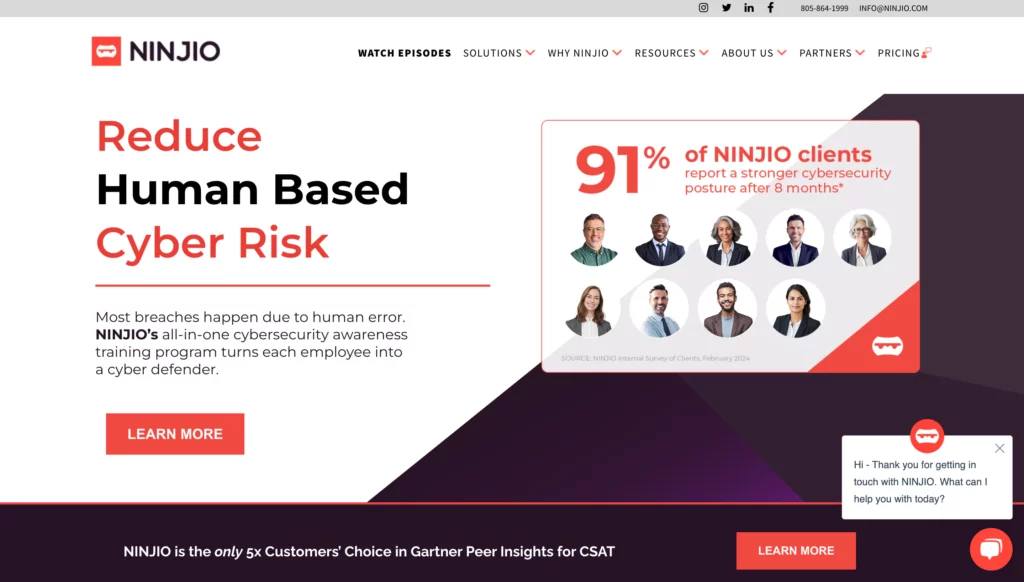
NINJIO is a training platform that uses engaging, animated short videos to educate your employees about cyber security topics. This platform focuses on a micro-learning approach. It accordingly delivers bite-sized training content on specific attack vectors. By using real-life examples and interactive elements, NINJIO aims to raise employee awareness and mitigate cyber threats.
The NINJIO platform covers the following topics:
- Aware: This training provides your employees with knowledge about the most recent cybercrime.
- Phish3D: Its AI-powered phishing simulations measure how your employees are vulnerable to social engineering. Further, it collects this data for the NINJIO Risk Algorithm to build a specific profile of social engineering vulnerabilities for each employee.
- Sense: This behavioral science training aims at social engineering tactics. These tactics help employees, especially those in cybersecurity roles, to instinctively detect and respond to possible cybercrime based on their understanding and experience.
- Alert: This lightweight reporter button enables employees to detect suspicious emails swiftly.
- Compliance: Understanding the importance of complying with industry regulations, NINJIO trains employees on CCPA, GDPR, HIPAA, and PCI.
NINJIO also offers services to monitor all your cyber security training programs.
Price
Contact Sales!
9. Infosec
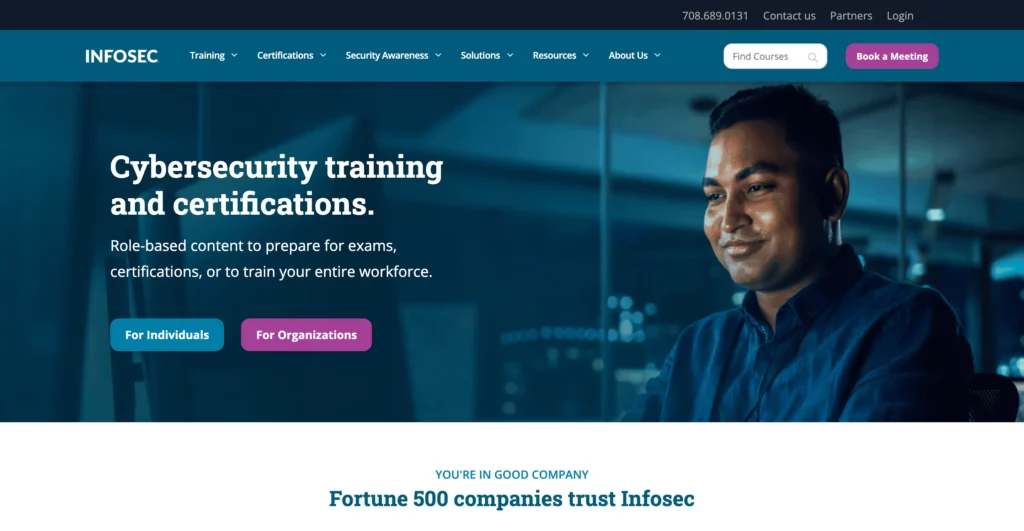
Infosec Institute is one of the leaders in cyber security training and certification for employees. They offer a diverse range of courses, from introductory to advanced levels, covering various cybersecurity domains. Therefore, they helps your company build a strong cybersecurity workforce through their comprehensive training programs and certifications.
Here’s what they provide:
- Live Boot Camps: This certifies your cybersecurity skills through multiple training programs. They include CompTIA Security+ Training Boot Camp, ISC2 CISSP Training Boot Camp, Cisco CCNA Associate Training Boot Camp with Dual Certification, etc.
- Immersive Boot Camps: This helps beginners gain hands-on experience and career-ready skills from industry experts. This bootcamp lasts 26 weeks.
- Self-Paced Training: This allows you to customize cybersecurity training for your busy schedule. Be it for newcomers or advanced professionals, Infosec can help you build suitable training programs.
- Learning Paths: You can access a vast library of on-demand training on different cybersecurity topics. By choosing appropriate training, you can build a personalized learning path for your employees.
- Infosec IQ: This raises security awareness through simulations and phishing templates. It empowers your employees with essential knowledge and skills with 2,000+ resources. They entail Core Concepts: Phishing, HIPAA HITECH, Core Concepts: Business Email Compromise (BEC), etc.
Price
For Infosec IQ: Contact sales!
For other training programs: $299/year for Infosec Skills Personal + $799/year for Infosec Skills Teams.
10. Hoxhunt
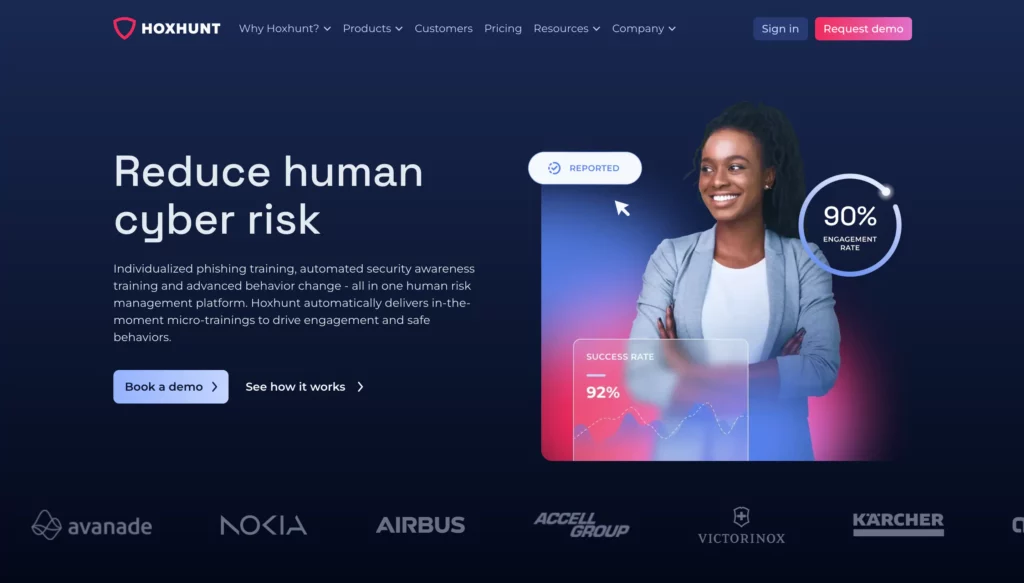
Hoxhunt is the cyber security training program for human risk management. It delivers personalized training based on user behavior. Hoxhunt also offers real-time feedback and micro-learning modules to improve employee knowledge and skills.
Here’s what Hochunt provides:
- Phishing Training: Hoxhunt allows you to customize training to fit your employees. It aims to train employees to identify and respond to the most complex spear-phishing attacks through simulations. You can also use AI or manual approaches to create targeted training.
- Security Awareness Training: Hoxhunt enables your employees to master compliance and cybersecurity based on their roles and understanding. You can leverage generative AI to automatically create new training content. Also, your employees can track their progress through visual dashboards.
- Security Behavior & Culture Change: Beyond security awareness, Hoxhunt provides adaptive training based on your company’s behavior-based data from different business systems. It gives you a clearer picture of what drives risky behaviors and how to tackle them. You then can change these behaviors and foster a security-aware culture.
Additionally, Hoxhunt offers Security Operations to manage employee-generated threats and recover from these vulnerabilities. In particular, it can recognize and remove malicious emails, and focus on resources that are prone to cyberattacks.
Price
Contact Sales!
Conclusion
Now, you’re here, after discovering everything related to cyber security training for employees. We elaborated on its definition, training types, and providers. So now, it’s your turn to embark on the cybersecurity training journey to equip your employees with the latest trends, threats, and solutions. If you want to ask more info about cybersecurity training, contact us now and discuss your needs!

















































